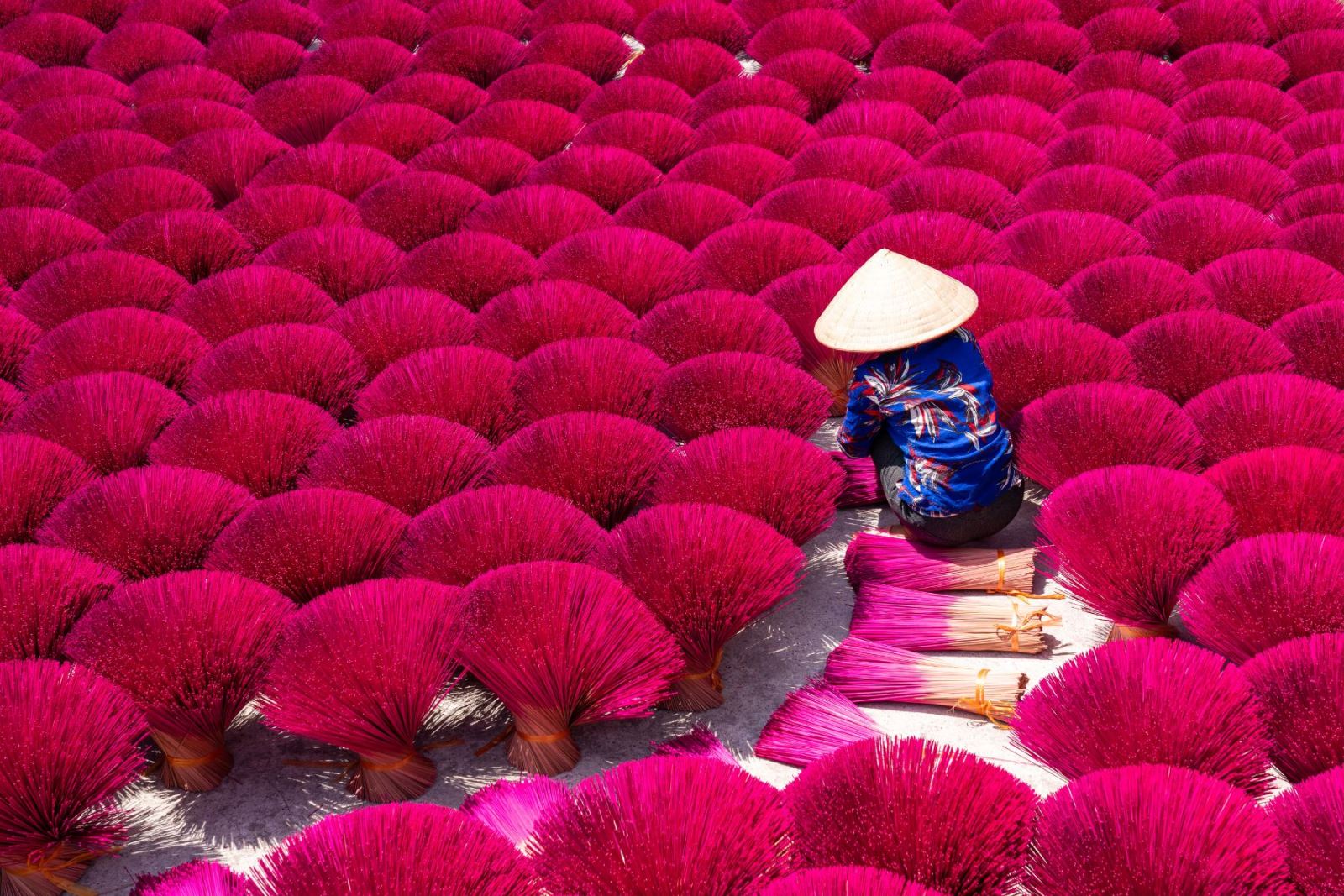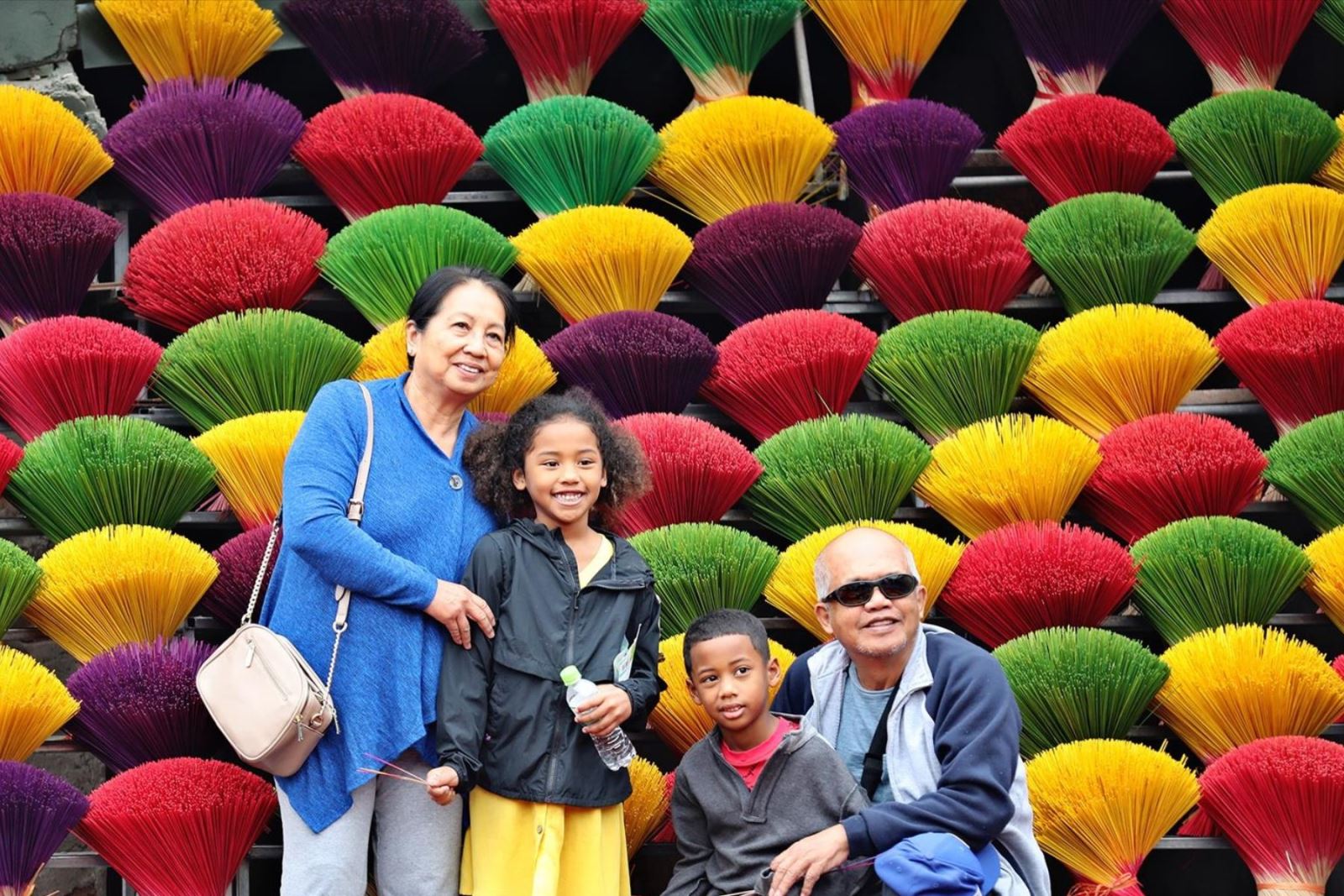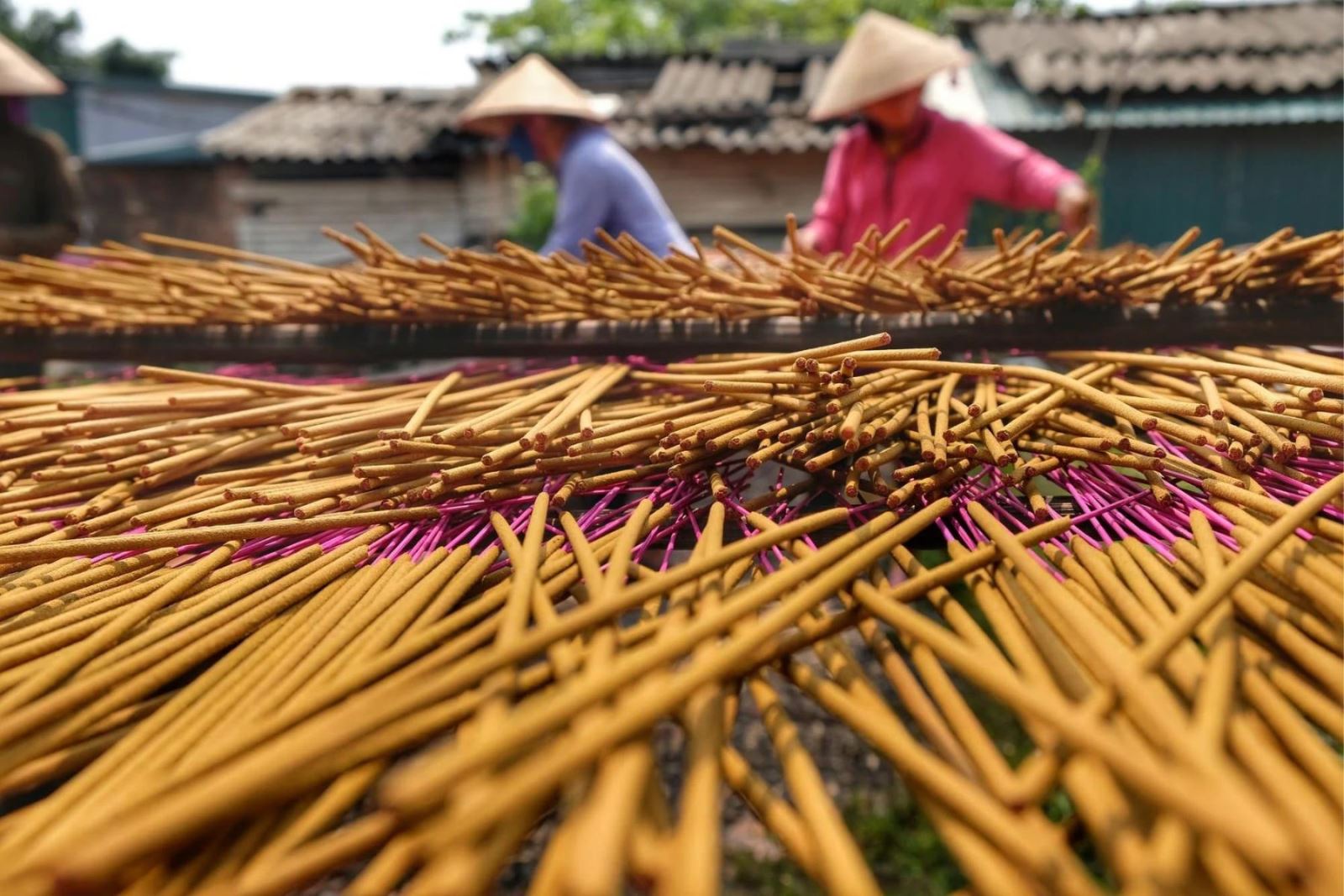For your holiday in Hanoi, if you have visited all the iconic must-see places and are seeking a more interesting experience to delve into Asian culture, consider Quang Phu Cau Incense Village. This village exudes vibrant beauty, full of colors yet still maintaining the characteristic nostalgia of traditional craft villages in Northern Vietnam. Many tourists, both domestic and international, come here to explore, immerse themselves in the culture, and learn about the process of making incense, a tradition that has existed for over 100 years.
For your holiday in Hanoi, if you have visited all the iconic must-see places and are seeking a more interesting experience to delve into Asian culture, consider Quang Phu Cau Incense Village. This village exudes vibrant beauty, full of colors yet still maintaining the characteristic nostalgia of traditional craft villages in Northern Vietnam. Many tourists, both domestic and international, come here to explore, immerse themselves in the culture, and learn about the process of making incense, a tradition that has existed for over 100 years.
1. Where is Quang Phu Cau Incense Village, and how to travel?
Quang Phu Cau Incense Village is located in Ung Hoa district, about 35 km south of the center of Hanoi. This charming village is renowned for its lively traditional culture and friendly locals. The atmosphere is tranquil, undisturbed by the hustle and bustle of urban life. One can easily reach this destination in just 40 minutes by road, using various modes of transportation such as motorcycles, taxis, or buses.
If opting for a motorcycle, the route to Quang Phu Cau Incense Craft Village is as follows: From the city center, take National Highway 21B, then follow So 429 road towards Quang Phu Cau. Due to the dense traffic in Hanoi, this choice offers you more freedom to explore the area at your own pace, but it comes with risks. Pay attention to traffic and adjust your speed accordingly.
For those preferring public transportation, local bus number 91 is the most economical choice to reach Quang Phu Cau Village. However, note that this option may not be very convenient as this bus stop may not serve areas in the city center where tourists typically stay.
Another option is taking a taxi or private car, albeit at a higher cost, it provides a comfortable and flexible means of transportation.

2. Why does Quang Phu Cau Incense village attract tourists?
Quang Phu Cau Village stands out as one of the most captivating destinations to explore traditional handicrafts and marvel at the splendor of Vietnamese ancestral culture. Both tourists and local residents harbor a profound love for this place, characterized by a rich cultural tapestry combined with the vibrant and unique hues.
The streets here feature open spaces bathed in intense sunlight, creating an illusion of expansive fields of red incense, resembling vast blooming flowers. In this incense-making village, the clustered incense sticks are gathered generously, with their interconnected heads and evenly blossoming stems, resembling flourishing flowers. Radiating the vibrant hues of the Orient, yellow and red, Quang Phu Cau incense evokes passion and admiration. This place is a familiar retreat for both domestic and international photographers, showcasing award-winning works.

3. How was incense made?
Before exploring how incense was made, let's take a moment to learn about the ancestral worship culture of the Vietnamese people.
Incense and Ancestral Worship Culture
Vietnam, a land with a rich tradition, focuses on ancestral worship and has a deep foundation in Buddhist philosophy. The ritual of burning incense is a familiar custom to most Asian people, regardless of age or locality. Incense has deep roots in the cultural and religious life of the Vietnamese, symbolizing traditional beauty, closeness, and sacredness.
Even for those not superstitious, this idea resonates in the minds of all Asian people: burning incense creates an invisible connection between the tangible and intangible worlds. The practice of offering incense to ancestors, whether on special occasions or in daily life, has ingrained itself deeply in their culture. As the gentle smoke rises, a warm and pleasant feeling permeates the soul. There is a profound belief that the act of burning incense and the rising smoke act as messengers for their prayers to their ancestors.
Stages of Making Incense:
In essence, incense has a close connection with the spiritual realm, implying that the production stages of incense cannot be overlooked. It is mandatory that the materials used in its production remain immaculately clean.
Crafting an incense stick involves many meticulous stages for artisans: splitting bamboo, sharpening sticks, dyeing incense, shaping the stick, drying, and packaging. Bringing this spiritual product to life requires significant effort and dedication.
Firstly, the bamboo used must be cut and polished to create good-quality sticks. Then, artisans sort and bundle the cotton for incense dyeing. About one-third of the stick is coated with red paint or other shades if needed. The remaining two-thirds are covered with incense powder, derived from aromatic plant components, ground into powder, and carefully mixed in precise proportions. This step determines the distinctive scent for each type of incense.
Once the stick is ready, it is exposed to sunlight to prevent mold formation. Additionally, local artisans often blend this powder with various aromatic herbs, creating a subtle, long-lasting, and captivating fragrance.

4. When should I visit Quang Phu Cau village?
Quang Phu Cau Incense Village remains a year-round destination but becomes especially vibrant during the Tet holiday, the Lunar New Year.
For a successful visit, an important tip is that incense permeates the air throughout Quang Phu Cau. However, when wanting to capture these scenes in people's yards, it's crucial to seek their permission first. It is strictly prohibited to enter or take photos without consent. Additionally, to support the local community, consider purchasing a few packs of incense for your personal use or as gifts.
For photography enthusiasts aiming to capture standout images, choose clothing with colors that contrast with the red incense sticks. Shades like white, yellow, or green are more suitable. This way, your photos will not only be aesthetically pleasing but also stand out distinctly.